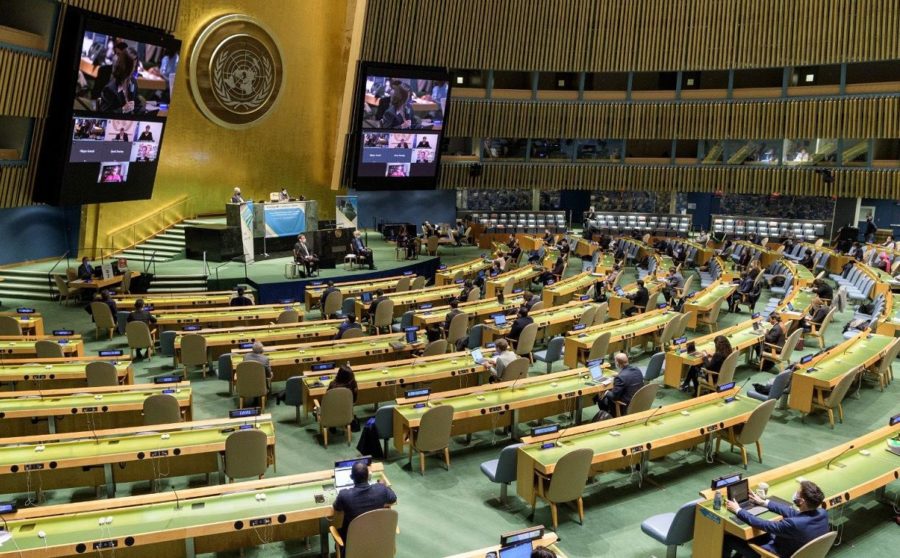10th December 2020 Geneva, Switzerland
Disarmament blog: space resolution adopted

Back in August, I posted a blog about the launch of our new initiative on outer space security at the UN General Assembly.
Throughout September and into October we were busy consulting UN member states on the text – bilaterally, in small groups, and in consultations open to the whole membership – and making adjustments to reflect the balance of opinion. The final text of the resolution, entitled ‘Reducing Space Threats Through Norms, Rules and Principles of Responsible Behaviours,’ was tabled on 23 October, and voted on by the First Committee in November. On Monday this week, when the General Assembly considered the recommendations of the First Committee, the resolution was formally adopted, with 164 votes in favour, 12 against, and six abstentions.
Steering any resolution through the General Assembly is always hard work. Launching a new resolution from scratch is a particularly big undertaking. Doing so in the midst of a global pandemic, when the possibility for in-person negotiations is so restricted, could be considered positively courageous (in the Yes, Minister sense). But thanks to the really positive and constructive engagement from delegations right across the UN membership, not to mention the brilliant work of my own team, we got there.
Now the resolution is on the books (as UNGA resolution 75/36), what happens next?
The two main provisions of the resolution are in operative paragraphs 5 and 6. OP5 calls on all UN member states “to study existing and potential threats and security risks to space systems, including those arising from actions, activities or systems in outer space or on Earth; characterize actions and activities that could be considered responsible, irresponsible or threatening and their potential impact on international security; and share their ideas on the further development and implementation of norms, rules and principles of responsible behaviours and on the reduction of the risks of misunderstanding and miscalculations with respect to outer space.” That process can start straight away.
OP6 asks member states to submit their views on these issues to the UN Secretary-General, who will produce a substantive report analysing those submissions and making recommendations on areas for future work. We expect the process of producing those national submissions to run from January to May, and the UNSG’s report to issue in August. The First Committee will consider the report at its next session in October 2021, and decide what action it wants to take as a next step.
For the first half of next year, then, we’ll be putting together our own national submission and encouraging other member states to do so too. If the report is going to succeed in our aim of building a shared understanding of current and future threats in space, and possible solutions, then it needs to reflect the views of as broad a range of member states as possible. So while the resolution has passed, the work is really only just beginning.